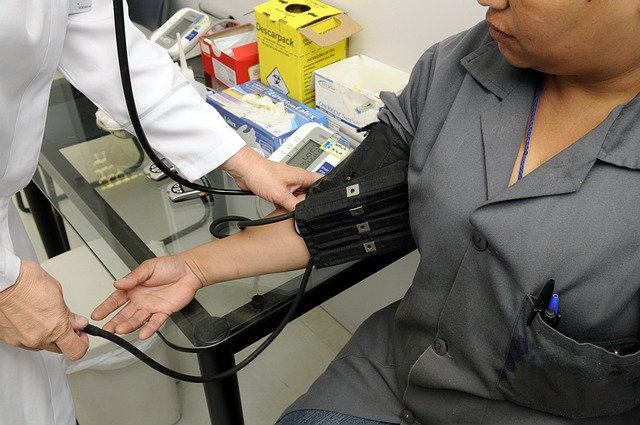Medications That Cause Heart Failure | See Signs and Symptoms
Heart failure is a serious medical condition in which the heart cannot pump blood efficiently enough to meet the body’s needs. This impairment leads to a range of symptoms and complications that can significantly affect quality of life. While many cases are caused by underlying cardiovascular disease, hypertension, or genetic predisposition, research shows that certain medications can also trigger or worsen heart failure. These drugs may weaken the heart muscle, alter fluid balance, or interfere with normal heart rhythms, ultimately increasing the risk of cardiac dysfunction. For patients who rely on long-term pharmacological treatments, understanding this connection is essential, as early recognition of signs allows timely intervention and can help prevent severe complications. Patients should be aware that drug-induced heart failure may develop gradually, making continuous monitoring an important safeguard against progression.

Cancer Therapies and Heart Failure Risk
Several cancer treatments can damage the heart muscle and lead to heart failure, a condition known as cardiotoxicity. Anthracyclines, including doxorubicin (Adriamycin) and epirubicin, are among the most well-documented cardiotoxic chemotherapy agents. These medications can cause progressive damage to heart cells, sometimes manifesting years after treatment has concluded. Other cancer therapies with potential cardiac effects include trastuzumab (Herceptin), which targets HER2-positive breast cancers, and newer immunotherapies and targeted therapies.
The risk of heart failure from cancer treatments depends on several factors, including cumulative dosage, pre-existing cardiovascular conditions, age, and concurrent treatments. Oncologists often monitor cardiac function before, during, and after treatment through echocardiograms or other cardiac imaging tests to detect early signs of heart damage.
Diabetes and Weight-Loss Medications Affecting Cardiac Function
Certain medications prescribed for diabetes and weight management have been associated with heart failure risks. Thiazolidinediones (TZDs), such as pioglitazone and rosiglitazone, can cause fluid retention and increase the workload on the heart, potentially triggering or worsening heart failure symptoms. This class of diabetes drugs works by improving insulin sensitivity but may lead to sodium and water retention.
Conversely, newer diabetes medications like SGLT2 inhibitors (including empagliflozin and dapagliflozin) have shown cardiovascular benefits, including reduced hospitalization for heart failure. However, some GLP-1 receptor agonists used for diabetes and weight management have mixed cardiac effects and should be prescribed cautiously in patients with existing heart conditions.
Weight loss medications, particularly older appetite suppressants with stimulant properties, can increase heart rate and blood pressure, potentially straining the heart. Patients with cardiovascular risk factors should discuss the cardiac implications of these medications with their healthcare providers before beginning treatment.
Antiarrhythmic and Blood Pressure Medications Considerations
Ironically, some medications used to treat heart conditions can potentially cause or worsen heart failure. Certain antiarrhythmic drugs, particularly Class I agents like flecainide and propafenone, can have negative inotropic effects (reducing heart contractility) and should be used cautiously in patients with structural heart disease or existing heart failure.
Non-dihydropyridine calcium channel blockers, including verapamil and diltiazem, can decrease heart contractility and potentially exacerbate heart failure in vulnerable patients. While these medications are effective for conditions like atrial fibrillation and hypertension, their use requires careful consideration of the patient’s cardiac function.
Other medications that may impact cardiac function include:
-
Nonsteroidal anti-inflammatory drugs (NSAIDs) like ibuprofen and naproxen, which can cause sodium retention and reduced kidney function
-
Corticosteroids, which may promote fluid retention and hypertension
-
Some psychiatric medications, particularly certain antipsychotics and tricyclic antidepressants
-
Certain anti-cancer medications beyond those mentioned earlier
Physicians must carefully weigh the benefits against potential cardiac risks when prescribing these medications, especially for patients with existing cardiovascular concerns.
Recognizing and Diagnosing Medication-Induced Heart Failure
Medication-induced heart failure can develop gradually or appear suddenly, depending on the medication and individual risk factors. Common warning signs include:
-
Increasing shortness of breath, especially during activity or when lying flat
-
Persistent coughing or wheezing
-
Swelling in the ankles, feet, legs, or abdomen (edema)
-
Fatigue and weakness
-
Rapid or irregular heartbeat
-
Reduced exercise tolerance
-
Sudden weight gain from fluid retention
-
Difficulty concentrating or decreased alertness
Diagnosing medication-induced heart failure typically involves a thorough medical history, including a comprehensive review of all medications. Healthcare providers may order tests such as echocardiograms to assess heart function, chest X-rays to check for fluid in the lungs, blood tests to measure biomarkers like BNP (B-type natriuretic peptide), and electrocardiograms to evaluate heart rhythm and structure.
The timing of symptom onset in relation to medication initiation or dosage changes can provide important diagnostic clues. Some medication effects appear within days or weeks, while others may develop months or years after treatment.
Treatment and Management Options
When medication-induced heart failure is suspected, the approach to treatment follows several key principles:
The first step typically involves discontinuing or modifying the offending medication when possible. This decision requires careful consideration of the necessity of the medication balanced against cardiac risks. Sometimes, lower doses or alternative drugs with similar therapeutic effects but less cardiac impact can be substituted.
Standard heart failure treatments are often implemented, including:
-
Diuretics to reduce fluid buildup
-
ACE inhibitors or ARBs to reduce strain on the heart
-
Beta-blockers to improve long-term heart function
-
Mineralocorticoid receptor antagonists for additional fluid control
-
Newer heart failure medications such as ARNI therapy or SGLT2 inhibitors in appropriate cases
Recovery from medication-induced heart failure varies widely. Some patients experience complete resolution of symptoms when the causative medication is discontinued, particularly if the condition is caught early. In cases where significant cardiac damage has occurred, heart failure may require ongoing management.
Prevention remains the best approach, with careful medication selection for at-risk patients, appropriate monitoring during treatment with potentially cardiotoxic medications, and regular cardiovascular assessments for those on high-risk therapies.
This article is for informational purposes only and should not be considered medical advice. Please consult a qualified healthcare professional for personalized guidance and treatment.




